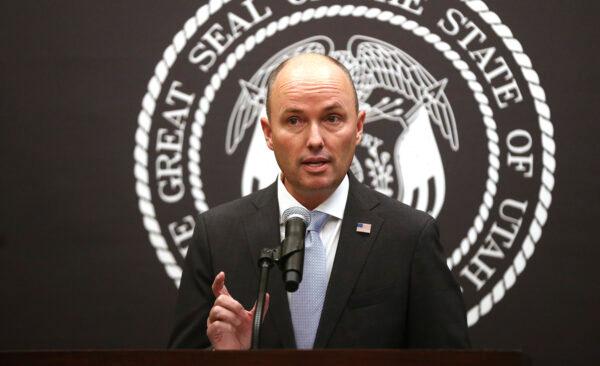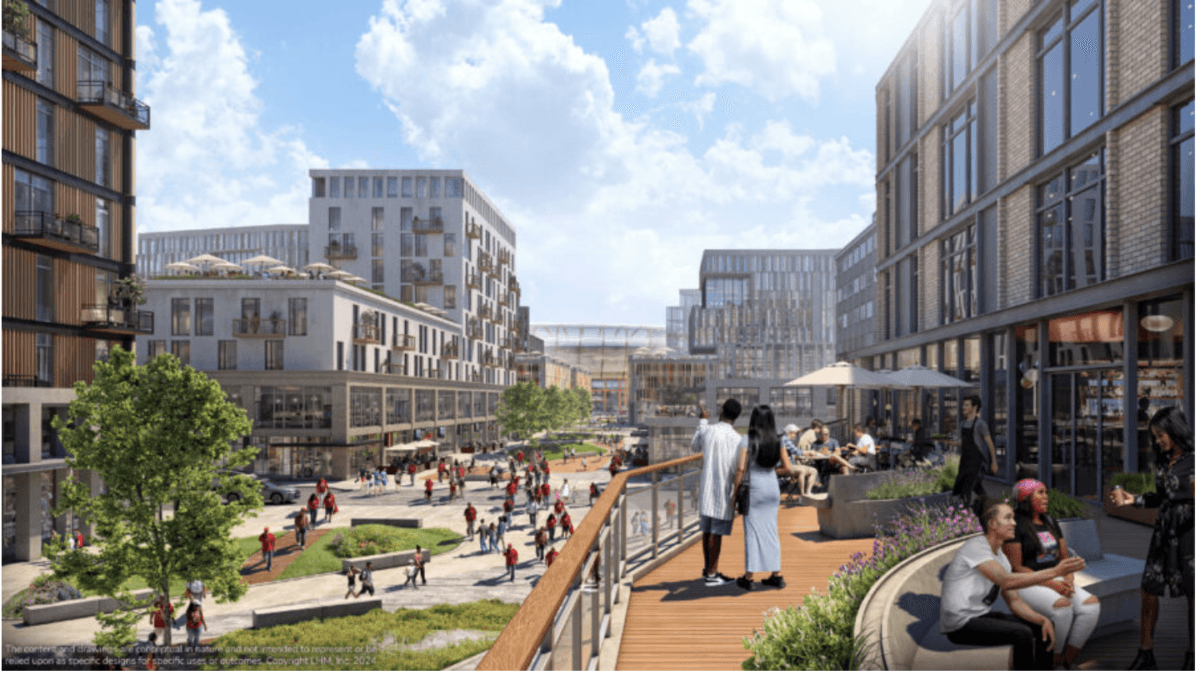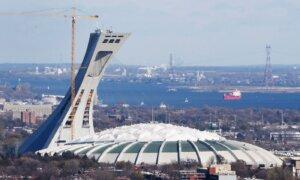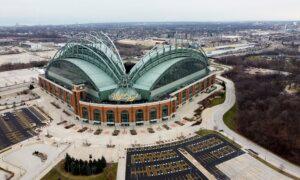Rivals say Gov. Spencer Cox will pay in the June GOP primary for supporting bills that commit tax money to bolster Salt Lake City’s drive to net MLB, NHL teams.
SALT LAKE CITY—Despite more than 130 studies compiled over decades confirming that use of public monies to build or subsidize private sports venues rarely produce the promised return on investment for taxpayers, local and state governments across the United States are dipping into their coffers to do just that.
The latest: the Utah Legislature in Salt Lake City, during its 45-day 2024 session that concluded on March 2, agreed to kick in nearly $2 billion in public funding in public-private redevelopment projects to build a National Hockey League (NHL) arena and Major League Baseball (MLB) stadium.
The project is spearheaded by Gail Miller and Larry H. Miller Co., which has pledged $3.5 billion to the redevelopment effort along North Temple Street in west Salt Lake City between Redwood Road and the Jordan River. Miller Co. is essentially offering to pay for half the stadium construction and lease it from the state.
Although revenues from an increased statewide car rental tax will be funneled into the project, most of the $900 million in public monies will come from property and sales taxes within the district itself through Tax Increment Financing (TIF) and other mechanisms.
Proponents touted surveys in which Utahans statewide support Salt Lake City building a stadium to lure a MLB franchise in the hopes that Miller Co. maintains would draw a projected attendance of 27,000 a game in the opening season.
Under SB 272, the city will raise its sales tax by 0.5 percent to generate about $1 billion in an effort to attract an NHL team to the city.
As the overwhelming adoptions show, both bills received broad bipartisan support and were backed by Salt Lake City Mayor Erin Mendenhall, Salt Lake County Mayor Jenny Wilson, and Gov. Spencer Cox, a Republican who is expected to sign both bills this week.
“A thriving state needs a thriving downtown in its capital city. With today’s passage of the Capital City Reinvestment Zone bill, we are poised to invest deeply in Salt Lake City’s downtown experience,” Utah Jazz owner Ryan Smith, Ms. Wilson, and Ms. Mendenhall said in a March 2 statement.
“This is a great day for all Utahans and we look forward to continued collaboration toward our goal of creating an unrivaled experience in downtown Salt Lake City,” they added.
Fast-Tracked Deals Draw Scrutiny
Despite the lopsided approvals to the bills, which surfaced late in the session and were fast-tracked to adoption, there is growing opposition to the public financing deals as more Utahans realize what lawmakers did.
The executive director of the Utah chapter of Americans For Prosperity, Kevin Greene, called the Fairpark stadium deal “a lose-lose for Utah taxpayers who will face higher taxes and fewer public services as a result.
“While every Utahan would be excited for new sports teams,” he continued in a statement, “the wealthy sports franchises who want new stadiums should foot the bill themselves. If a billion dollars of hardworking families’ money is the price to play ball, Utah shouldn’t play the game at all.”
Mr. Greene called on taxpayers to continue opposing the projects to convince lawmakers to reverse their approvals.
“They need to hear all of us. Government shouldn’t be in the business of picking winners and losers, and we have to let them know that we don’t support these bills,” he said.

Two Republicans seeking to unseat Gov. Cox in the state’s June 25 GOP primary say his support for the public-private ventures are illustrative of how the first-term moderate has been a profligate spender, increasing the state’s budget in three years from $20.5 billion to $29.5 billion.
“Instead of dropping tax rates, we’re building stadiums,” Rep. Phil Lyman (R-Blanding) told The Epoch Times. ““Nothing against Miller and entrepreneurs pushing it, but it’s not what government is supposed to be doing. Who wants to own a stadium?”
In an X scroll, Mr. Lyman listed six reasons why he opposed the measure, noting many of the state’s highway lanes desperately require repainting, among other needs.
“As your Governor,” he concludes, “I will make sure the government stays in its lanes and private professional sports teams stay in their lanes.”
Carson Jorgensen, the youngest Utah Republican Party chair ever—he was 31 when he assumed the post in May 2021 before resigning in 2023 to run for governor—said he “disagrees vehemently” with the public subsidizing private ventures.
Mr. Jorgensen told The Epoch Times that under the bills, taxpayers are “subsidizing the risk and privatizing the reward. If these rich billionaires want to build their own stadiums, by all means, let them but we shouldn’t be subsidizing with taxes. This all comes back to priorities and principles. It’s either right or it’s wrong. That’s all there is to it.”
Sen. Mike Kennedy (R-Alpine), among 10 candidates running in the Republican primary to succeed Rep. John Curtis (R-Utah), who is vacating his House seat to run for the U.S. Senate, said he voted against both “billionaire boondoggles” because subsidizing private projects is “not the role of government.”
Also, he told The Epoch Times, “in the long-run, [sports venue projects] never produce the economic benefit” proponents tout.

Utah Not An Outlier
Utah lawmakers adopted both bills despite warnings from Kennesaw State University Prof. J.C. Bradbury, the Georgia economist who is a leading researcher on publicly financed sports venues.
Mr. Bradbury has ferreted through 130 studies on publicly financed sports stadiums and nearly all confirm public financing for stadiums are poor investments.
Lawmakers were nevertheless convinced that this time, it’s going to be different, Mr. Kennedy said.
“There’s always, always, always ways to market and sort of advertise and evaluate these things but they never pencil out,” he said. “They never bring huge amounts of money to the state. The state always ends up subsidizing.”
Utah lawmakers aren’t outliers in approving the deals.
In December, Wisconsin Gov. Tony Evers signed a bill to put $500 million in state and local funds toward renovation of the Milwaukee Brewers’ stadium and Oklahoma voters approved a 1-percent sales tax increase to generate $900 million for a new arena for the NBA’s Oklahoma City Thunder.
Elsewhere, taxpayers will pay half the $1.9 billion for the Buffalo Bills’ new stadium, $1.26 billion for Tennessee Titans’ new $2.1 billion stadium in Nashville, and $430 million to renovate the Baltimore Ravens’ stadium.
Virginia lawmakers in February agreed to allocate $2 billion to reanimate stalled efforts to induce the NBA’s Washington Wizards and NHL’s Washington Capitals to move out of the city and into northern Virginia.
Nevada lawmakers in 2023 approved $380 million for a $1.5 billion baseball stadium in Las Vegas for the Oakland A’s after kicking in $750 million for the $2 billion stadium where the Las Vegas Raiders now play.
In Jackson County, Missouri, voters will consider an April ballot measure to hike sales taxes to generate $1.7 billion for a six-block redevelopment project that includes a new Kansas City Royals baseball stadium.
White Sox owner Jerry Reinsdorf is asking Chicago and Illinois taxpayers for $1 billion to build a new baseball stadium.
The city of St. Petersburg, Florida, wants to earmark $1.6 billion in financing, tax breaks, and land for a new baseball stadium for the Tampa Bay Rays and the Jacksonville Jaguars are looking for $1 billion in public monies for a new stadium.
Mr. Jorgensen said the more time taxpayers have to digest the deals, the more indigestion they engender.
Proponents “don’t even have a team and Major League Baseball is not even talking about expansion until 2030 but here they are saying, ‘Let’s go build [a stadium] and hopefully get a team. To me, it’s fiscally irresponsible. It’s not the job of the taxpayers. Government was never meant to do any of this kind of stuff.”
Original News Source Link – Epoch Times
Running For Office? Conservative Campaign Consulting – Election Day Strategies!


